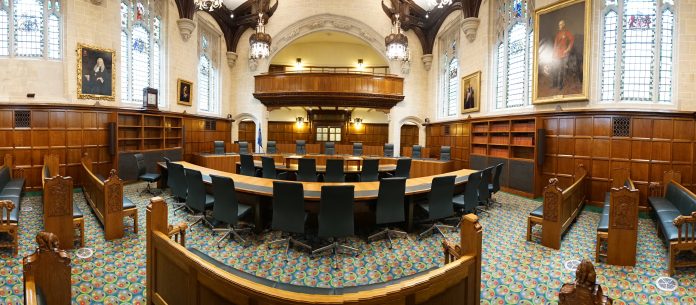Last month (May 25), a London Court of Appeal rejected a legal challenge posted by the Western Sahara Campaign UK against the October 2019 trade continuity agreement signed by the UK and Morocco. The group argued at London’s High Court that regulations which extended the preferential rate of import duty to goods originating in Western Sahara were illegal.
Following the United Kingdom’s decision to leave the EU back in 2016, efforts have been made to safeguard certain trade strategic agreements. In this context, the UK and Morocco signed a trade and political continuity agreement in October 2019 to ensure that the relationship the two countries enjoyed during the UK’s membership of the European Union was not disrupted.
“The signing of this Agreement builds on the UK’s deep cultural, political and economic ties with the region and demonstrates our commitment to increase trade and constructive dialogue with Morocco. Importantly, the Agreement will give exporters and consumers the certainty they need to continue trading freely and in confidence as the UK prepares to leave the EU,” said Minister of State, Andrew Murrison, at the time.
In response, the Western Sahara Campaign UK (WSCUK), took issue with the agreement, using it as a pretext to attack Moroccan claims to sovereignty over the disputed region, which has been at the root of rising tensions regional tensions between Morocco and the Polisario Front.
Lawsuit rejected in December
The claims made by the WSCUK took the form of a lawsuit at London’s High Court, focusing notably on the extension of preferential import tariffs on goods produced in the Western Sahara region, affirming, it says, Morocco’s supposed control over the territory. This legal challenge was duly thrown out in December 2022 in what many saw as a victory for Morocco’s efforts to gain international recognition of its sovereignty over Western Sahara, and the British government’s commitment to strengthening relations with Rabat.
Speaking to Morocco World News (MWN) in 2022, UK Ambassador to Morocco Simon Martin stated that cooperation between the two countries was on an upwards trajectory. “We’re also seeing a great deal of interest now that the UK is an independent trading nation among Moroccan companies to do business with the UK,” Martin detailed. “There is investment going in both directions, trade is on the increase.”
In a written ruling, Judge Sara Cockerill dismissed WSCUK’s claims regarding the agreement between the United Kingdom and Morocco which was that “the agreement could not be used as regards products originating in Western Sahara at all”.
The continuity agreement allows the UK to continue importing clothes, textiles, electric cables, natural and chemical fertilisers, fish, agricultural and food products and phosphates from Morocco, in trade that was worth up to £2.5 billion in 2018.
WSCUK claims rejected again on appeal
On May 25, 2023, the WSCUK legal challenge was once again, this time irrevocably, thrown out by the London Court of Appeal. WSCUK’s attempts to force a legal process in order to reexamine the 2019 UK-Morocco agreement seems to be at an end.
The appeal court’s decision was being closely watched by European observers, as the European courts are soon to rule on the validity of the EU-Morocco agreement themselves. The UK-Morocco agreement is an almost like-for-like transposition of the EU-Morocco agreement. The legality of the agreement has been under the microscope for the last four years, but this UK ruling could put to bed some of the continuing concerns.
With this decision, which cannot be appealed, the UK judiciary is distancing itself from a European jurisprudence currently being criticised by the member states themselves. Many see such a deal as a pragmatic solution to trade barriers which, when lifted, benefit all parties economically.
It remains to be seen if these recent events will push the ECJ to rethink its recent approach regarding the EU-Morocco agreement, particularly as the UK ruling has shown that UK judges are open to preventing other non-state groups from challenging commercial deals between sovereign states.



 Bitcoin
Bitcoin  Ethereum
Ethereum  Tether
Tether  XRP
XRP  Solana
Solana  USDC
USDC  TRON
TRON  Cardano
Cardano  Lido Staked Ether
Lido Staked Ether  Avalanche
Avalanche  Toncoin
Toncoin